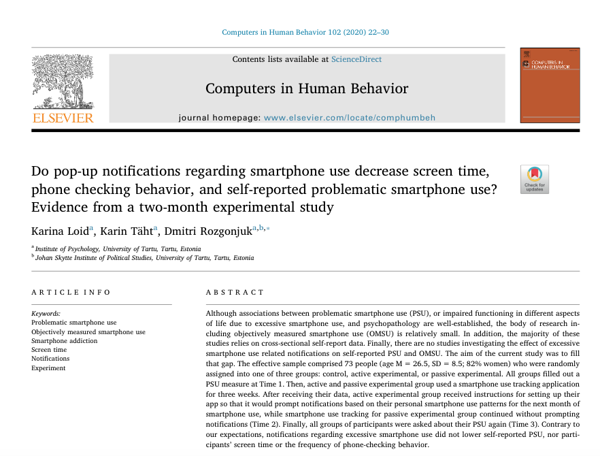Do pop-up notifications regarding smartphone use decrease screen time, phone checking behavior, and self-reported problematic smartphone use? Evidence from a two-month experimental study
Although associations between problematic smartphone use (PSU), or impaired functioning in different aspects of life due to excessive smartphone use, and psychopathology are well-established, the body of research including objectively measured smartphone use (OMSU) is relatively small. In addition, the majority of these studies relies on cross-sectional self-report data. The aim of the current study was to fill that gap.
The effective sample comprised 73 people (age M = 26.5, SD = 8.5; 82% women) who were randomly assigned into one of three groups: control, active experimental, or passive experimental. All groups filled out a PSU measure at Time 1. Then, active and passive experimental group used a smartphone use tracking application for three weeks.
After receiving their data, active experimental group received instructions for setting up their app so that it would prompt notifications based on their personal smartphone use patterns for the next month of smartphone use, while smartphone use tracking for passive experimental group continued without prompting notifications (Time 2). Finally, all groups of participants were asked about their PSU again (Time 3). Contrary to our expectations, notifications regarding excessive smartphone use did not lower self-reported PSU, nor participants’ screen time or the frequency of phone-checking behavior.


Add a comment